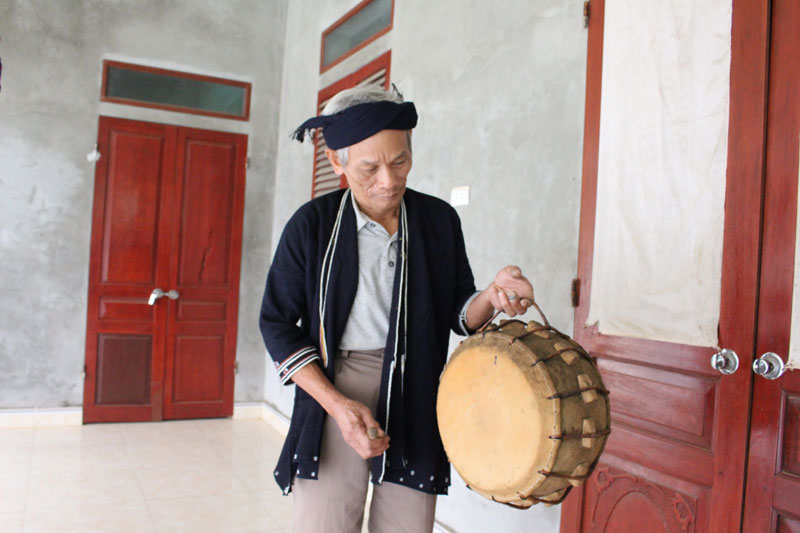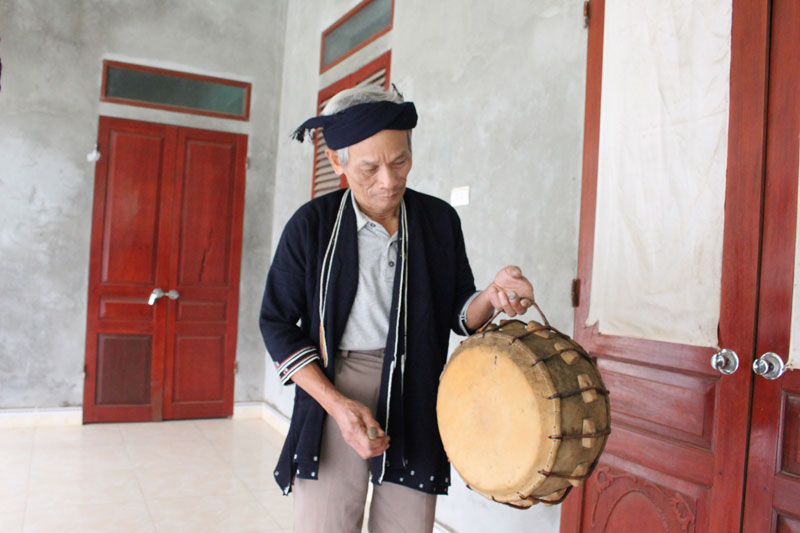
(HBO) – Dao ethnic people in Toan Son commune, Da Bac district, Hoa Binh province, make up 43.3 percent of the commune’s total population. Their unique spiritual and cultural values are vividly illustrated in the housing architecture, customs, costumes, festivals, folk songs, and traditional dances.
Dao
people in Toan Son commune mainly live in Phu, Ranh, and Cha hamlets. One of
their most special traditional cultures is "cap sac” (maturity ritual)
ceremony, which is considered an indispensable ritual for ethnic men because
only when they are declared the coming of age, they have right to involve in
the village’s work. Boys from ten years above could pass this ritual. The most
valuable thing in this ritual is teaching. The sharman will have teachings to
the matured men so that they will not do evil and have to respect their
parents. The teachings are done by vows under the witness of gods, heaven and
earth, ancestors and before all people in the family.

Mr. Dang Tien Dung from Cha hamlet, Toan Son commune
(Da Bac), prepares musical instrument for Tet Nhay (dancing festival).
Dao people always attach great important to
ancestor worshipping and Tet Nhay (dancing festival) is a special ritual.
Every day, Dao people from Toan Son commune wear
traditional costumes including a shirt, pants, belt, silver jewelry and a
headscarf. Women’s shirts are usually knee-length. With the skillful hands and
diligence, Dao ethnic women create colourful costumes.
Women weave and dye fabrics, then skillfully embroider and decorate patterns
which are close to the nature and represent their wish of a prosperous life.
Besides, Dao ethnic people are always aware of
preserving their scripts through teaching young generations. From 2016 to
present, Toan Son commune has opened three Dao language teaching classes.
Traditional dances of Dao ethnic people are performed in public in the
district’s events./.
With an increasingly vibrant and widespread emulation movement aimed at building cultured residential areas and cultured families, Yen Thuy District has been making steady progress toward improving both the material and spiritual well-being of its people, while fostering a civilized, prosperous, beautiful, and progressive community.
Once lacking recreational spaces and community facilities, Residential Group 2 in Quynh Lam Ward (Hoa Binh City) has recently received attention for the construction of a new, spacious, and fully equipped cultural house. The project followed the model of state support combined with public contributions in both labor and funding.
The "All people unite to build cultural life" movement, which has been effectively integrated with Kim Boi district’s socio-economic development goals, is fostering a lively spirit of emulation across local residential areas, hamlets, villages, public agencies, and enterprises. In addition, through the initiative, traditional cultural values are being preserved and promoted, while community solidarity and mutual support in poverty reduction and economic development are being strengthened.
A working delegation of the Hoa Binh provincial People’s Committee led by its Permanent Vice Chairman Nguyen Van Toan on June 11 inspected the progress of a project to build the Mo Muong Cultural Heritage Conservation Space linked to tourism services in Hop Phong commune, Cao Phong district.
Born and growing in the heroic land of Muong Dong, Dinh Thi Kieu Dung, a resident in Bo town of Kim Boi district, in her childhood was nurtured by the sweet lullabies of her grandmother and mother. These melodies deeply imprinted on her soul, becoming an inseparable part of her love for her ethnic group's culture. For over 20 years, this love for her hometown has driven Dung to research, collect, and pass down the cultural values of the Muong people to future generations.
In the final days of May, the Ethnic Art Troupe of Hoa Binh Province organized performances to serve the people in remote, mountainous, and particularly disadvantaged areas within the province. These were not just ordinary artistic shows, but they were the meaningful journeys aimed at spreading cultural values, enhancing the spiritual life of the people and contributing to the preservation of ethnic minority cultural identities.



